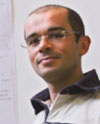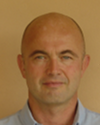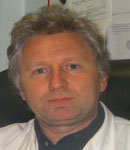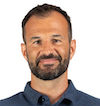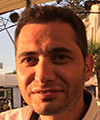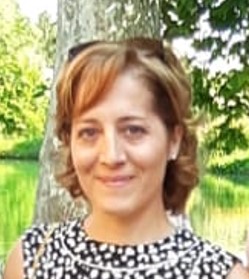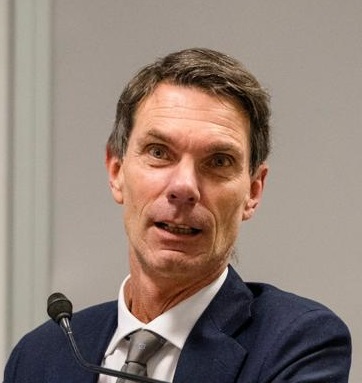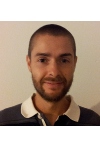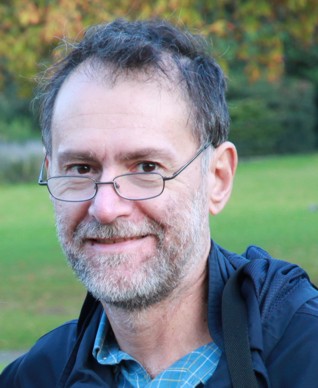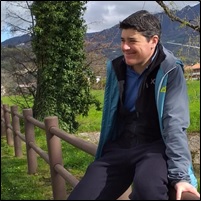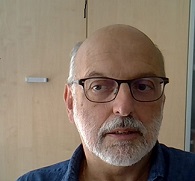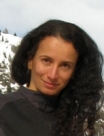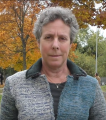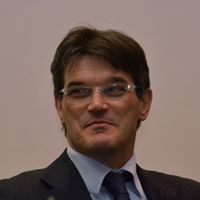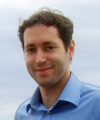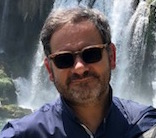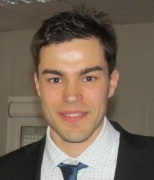Studying at the University of Verona
Here you can find information on the organisational aspects of the Programme, lecture timetables, learning activities and useful contact details for your time at the University, from enrolment to graduation.
Academic calendar
The academic calendar shows the deadlines and scheduled events that are relevant to students, teaching and technical-administrative staff of the University. Public holidays and University closures are also indicated. The academic year normally begins on 1 October each year and ends on 30 September of the following year.
Course calendar
The Academic Calendar sets out the degree programme lecture and exam timetables, as well as the relevant university closure dates..
| Period | From | To |
|---|---|---|
| 1° semestre motorie | Oct 1, 2020 | Jan 29, 2021 |
| 2° semestre motorie | Mar 1, 2021 | May 31, 2021 |
| Session | From | To |
|---|---|---|
| Sessione invernale 2020/21 e straordinaria 2019/20 | Jan 25, 2021 | Feb 26, 2021 |
| Sessione estiva | Jun 3, 2021 | Jul 2, 2021 |
| Sessione autunnale | Aug 30, 2021 | Sep 30, 2021 |
| Sessione invernale straordinaria 2020/21 | Jan 24, 2022 | Feb 25, 2022 |
| Session | From | To |
|---|---|---|
| Sessione estiva | Jul 5, 2021 | Jul 28, 2021 |
| Sessione autunnale | Oct 11, 2021 | Nov 5, 2021 |
| Sessione invernale straordinaria 2020/21 | Mar 14, 2022 | Apr 8, 2022 |
| Period | From | To |
|---|---|---|
| FESTIVITA' OGNISSANTI | Nov 1, 2020 | Nov 1, 2020 |
| FESTIVITA' IMMACOLATA CONCEZIONE | Dec 8, 2020 | Dec 8, 2020 |
| VACANZE DI PASQUA | Apr 2, 2021 | Apr 5, 2021 |
| FESTIVITA' DELLA LIBERAZIONE | Apr 25, 2021 | Apr 25, 2021 |
| FESTIVITA' DEL LAVORO | May 1, 2021 | May 1, 2021 |
| FESTIVITA' DEL SANTO PATRONO SAN ZENO | May 21, 2021 | May 21, 2021 |
| FESTIVITA' DELLA REPUBBLICA | Jun 2, 2021 | Jun 2, 2021 |
| VACANZE ESTIVE | Aug 14, 2021 | Aug 22, 2021 |
Exam calendar
Exam dates and rounds are managed by the relevant Exercise Science Teaching and Student Services Unit.
To view all the exam sessions available, please use the Exam dashboard on ESSE3.
If you forgot your login details or have problems logging in, please contact the relevant IT HelpDesk, or check the login details recovery web page.
Should you have any doubts or questions, please check the Enrollment FAQs
Academic staff
 michele.andreaus@unitn.it
michele.andreaus@unitn.it
 manuela.basso@unitn.it
manuela.basso@unitn.it
 valentina.biino@univr.it
valentina.biino@univr.it
 francesco.biral@unitn.it
francesco.biral@unitn.it
 stefano.biressi@unitn.it
stefano.biressi@unitn.it
 paolo.bouquet@unitn.it
paolo.bouquet@unitn.it
 gianmarco.campagnolo@univr.it
gianmarco.campagnolo@univr.it
 andrea.monte@univr.it
andrea.monte@univr.it
 giandomenico.nollo@unitn.it
giandomenico.nollo@unitn.it
 caterina.pesci@unitn.it
caterina.pesci@unitn.it
 ptrab@tiscali.it
ptrab@tiscali.it
 francescouguagliati@alice.it
francescouguagliati@alice.it
Study Plan
The Study Plan includes all modules, teaching and learning activities that each student will need to undertake during their time at the University.
Please select your Study Plan based on your enrollment year.
1° Year
| Modules | Credits | TAF | SSD |
|---|
2° Year activated in the A.Y. 2021/2022
| Modules | Credits | TAF | SSD |
|---|
1 module among the following1 module between the following1 module among the following| Modules | Credits | TAF | SSD |
|---|
| Modules | Credits | TAF | SSD |
|---|
1 module among the following1 module between the following1 module among the following| Modules | Credits | TAF | SSD |
|---|
Legend | Type of training activity (TTA)
TAF (Type of Educational Activity) All courses and activities are classified into different types of educational activities, indicated by a letter.
Type D and Type F activities
| years | Modules | TAF | Teacher | |
|---|---|---|---|---|
| 1° | Anthropometry | D |
Carlo Zancanaro
(Coordinator)
|
|
| 1° | Physiology of sport nutrition | D |
Silvia Pogliaghi
(Coordinator)
|
|
| 1° | Biochemistry for sport | D |
Massimo Donadelli
(Coordinator)
|
|
| 1° | Methodology of sport activities measures | D |
Luca Paolo Ardigo'
(Coordinator)
|
|
| 2° | Advanced nutrition for sports | D |
Silvia Pogliaghi
(Coordinator)
|
|
| 2° | Sport physiology | D |
Silvia Pogliaghi
(Coordinator)
|
|
| 1° 2° | Research psycology methods applied to sports | D |
Mirta Fiorio
(Coordinator)
|
|
| years | Modules | TAF | Teacher | |
|---|---|---|---|---|
| 1° | Sports and drugs | D |
Giovanna Paolone
(Coordinator)
|
|
| 1° | Forensic medicine and social security | D |
Aldo Eliano Polettini
(Coordinator)
|
|
| 1° | Research methodology applied to sport | D |
Laurent Damien George Mourot
(Coordinator)
|
|
| 1° | Statistics applied to movement sciences | D |
Maria Elisabetta Zanolin
(Coordinator)
|
|
| 2° | Clinical biochemistry applied to sport activity | D |
Giuseppe Lippi
(Coordinator)
|
|
| 2° | Physiology of sport performance | D |
Enrico Tam
(Coordinator)
|
|
Psychology and organization of volunteering institutions (2020/2021)
Teaching code
4S000547
Teacher
Coordinator
Credits
6
Also offered in courses:
- Psychology and organization of volunteering institutions of the course Master's degree in Preventive and Adapted Exercise Science
Language
Italian
Scientific Disciplinary Sector (SSD)
M-PSI/06 - WORK AND ORGANIZATIONAL PSYCHOLOGY
Period
1° semestre motorie dal Oct 1, 2020 al Jan 29, 2021.
Location
VERONA
Learning outcomes
The general aim of the course is to provide the basic knowledge and methodological tools to understand the child's main developmental processes (physical, motor, perceptual, cognitive, emotional, social, and linguistic). The specific objectives of the course are to succeed in framing the key concepts of developmental psychology into motor and sports education. Recent findings from the scientific international literature will be presented and discussed.
Program
The course is divided in two parts.
INTRODUCTORY FIRST PART
The first introductory part will presents the basic elements of the course:
- brief historical analysis of organizational sport psychology;
- disciplinary boundaries;
- the most recent fields of research (a. organizational performance, b. organizational stress perceived by athletes, coaches, and parents, c. perception of roles in sports teams and organizations, d. success factors in sport and in business, e. contexts and organizations that promote performance in elite sport, f. organizational citizenship behaviours in sport) and intervention organizational sport psychology;
- analysis of research methodologies in sport and exercise.
ADVANCED SECOND PART
The advanced second part will explore some thematic areas:
(1) theoretical approaches and definitions of sport organizations; organizational design; definition of adhocracy; distinction between organizational theory and organizational sport psychology;
(2) the structure of a sport organization and the study of organizational behavior; hierarchies and power in sport organizations; theoretical models and applications of leadership in sport organizations;
(3) the different types of sport organizations and Chelladurai’s classification (1985, 1992); the third sector in sport and exercise; definitions of management and marketing in sport; study of the behaviour, motivations, and decision making of the direct and indirect sport consumers;
(4) psychology in sports organizations; definitions, goals, motivations, values, and meaning of sport work; professions in sport and physical exercise in Italy and Europe; the profession of kinesiologist in Italy and in Europe; the process of professionalization;
(5) entrepreneurship in sport and exercise; non-profit organizations (NPOs) and volunteering in sport and exercise; volunteering in the non-profit Italian sector.
| Author | Title | Publishing house | Year | ISBN | Notes |
|---|---|---|---|---|---|
| Slack T., Parent M. | Understanding Sport Organizations. The Application of Organization Theory (Edizione 2) | Champaign, IL: Human Kinetics | 2006 | 9780736056397 |
Examination Methods
Oral evaluation
Career prospects
Module/Programme news
News for students
There you will find information, resources and services useful during your time at the University (Student’s exam record, your study plan on ESSE3, Distance Learning courses, university email account, office forms, administrative procedures, etc.). You can log into MyUnivr with your GIA login details: only in this way will you be able to receive notification of all the notices from your teachers and your secretariat via email and also via the Univr app.
Graduation
List of thesis proposals
Student mentoring
Gestione carriere
Orario lezioni
L’orario delle lezioni comprende
Lezioni Frontali in aula
Esercitazioni e laboratori
Questi ultimi sono organizzati per gruppi dai singoli docenti responsabili dei corsi.
L'orario è pubblicato nel portale studenti
Modalità di frequenza
Vige l'obbligo di frequenza al 70% come specificato nel Regolamento di ogni singolo corso di laurea e laurea magistrale:
Ulteriori informazioni:
L'accesso alle pagine Moodle dei singoli insegnamenti è vincolato alla compilazione del piano di studi.
App Univr Lezioni, FAQ e guida all'utilizzo sono disponibili al seguente link: orario-lezioni-e-modalita-di-frequenza
Comunicati: Avvisi per studenti
Internships
Internships are aimed at enabling students to gain direct knowledge of the world of work and to acquire specific professional skills.
Internships are carried out under the responsibility of an individual lecturer, and can be carried out in professional firms, public administration bodies and companies recognised by the University of Verona.
Any CFU credits gained by doing internships will be recognised and recorded by the University in accordance with the relevant University regulations in force (Regolamento d’Ateneo per il riconoscimento dei crediti maturati negli stage universitari).
For further information on internships, please go to: https://www.univr.it/it/i-nostri-servizi/stage-e-tirocini.
Linguistic training CLA
Certificazione medica di idoneità
Riferimenti normativi principali: DM 24 aprile 2013 art. 3, GU 169 del 20-07-2013; Decreto del Ministro della Salute dell’8 agosto 2014 e s.m.i.
Per frequentare le attività dei corsi di Laurea e Laurea magistrale di Scienze motorie è obbligatorio presentare la certificazione medica di idoneità fisica per attività sportiva non agonistica. La certificazione è necessaria per accedere alle attività pratiche-esercitative e al tirocinio.
à COME OTTENERE LA CERTIFICAZIONE
La certificazione - riportante l’indicazione che è stato eseguito l’ECG a riposo - può essere rilasciata da:
- centri o servizi di medicina dello sport delle ASL (ora ATS) e delle aziende ospedaliere
- istituti della Federazione Medico Sportiva Italiana
- centri pubblici o privati autorizzati:
- dai medici di medicina generale di libera scelta, relativamente ai propri assistiti;
- dal medico specialista in medicina dello sport.
L’ECG a riposo deve essere ripetuto annualmente.
E’ ammesso anche il certificato medico di idoneità alla pratica sportiva agonistica, per chi ne fosse già in possesso.
à SCADENZA PER LA PRESENTAZIONE
La certificazione medica deve essere prodotta al momento dell'immatricolazione e, comunque, entro l’inizio delle lezioni alla Segreteria Corsi di Studio Scienze motorie. Spetta agli studenti rinnovarla annualmente alla scadenza - per ogni anno di iscrizione in corso o fuori corso. La Segreteria effettuerà periodicamente dei controlli sulla consegna dei certificati.
NOTA: Studenti immatricolati a seguito di SUBENTRO/RIPESCAGGIO/TRASFERIMENTO IN INGRESSO: se non è possibile rispettare la scadenza di presentazione del certificato sopra indicata, avvisare la Segreteria Corsi di Studio Scienze, scrivendo all’indirizzo certmed.scienzemotorie@ateneo.univr.it
à MODALITA’ DI CONSEGNA
La certificazione va inviata alla Segreteria Corsi di Studio Scienze motorie dalla propria e-mail istituzionale nome.cognome@studenti.univr.it all’indirizzo certmed.scienzemotorie@ateneo.univr.it.
Student login and resources
Competenze linguistiche
DOPO LA LAUREA TRIENNALE
Per proseguire gli studi in uno dei corsi di Laurea Magistrale dell'ambito delle Scienze motorie è necessario possedere competenze linguistiche almeno di livello B1 informatizzato (o superiore) specificamente di lingua inglese, poichè i corsi di studio di livello superiore prevedono nel proprio piano didattico la presenza di insegnamenti o di moduli impartiti dai docenti direttamente in inglese.
Inoltre, tali competenze costituiscono requisito di accesso indispensabile per poter partecipare alla prova di ìngresso oppure per iscriversi ad una laurea magistrale.
La conoscenza di altre lingue diverse dall'Inglese NON può venire riconosciuta come "requisito" utile per l'accesso ai corsi di laurea magistrale. Tuttavia, la certificazione posseduta potrà essere valutata da un'apposita Commissione di docenti ed eventualmente riconosciuta in termini di crediti (CFU) a scelta dello studente, presentando domanda al momento dell'immatricolazione.
Si invita a leggere con attenzione i bandi di concorso annuali per l'ammissione ai corsi di laurea magistrali per maggiori informazioni - consultare nel sito del corso di studio anche la sezione "Iscriversi".

 +39 045 842 5117
+39 045 842 5117



